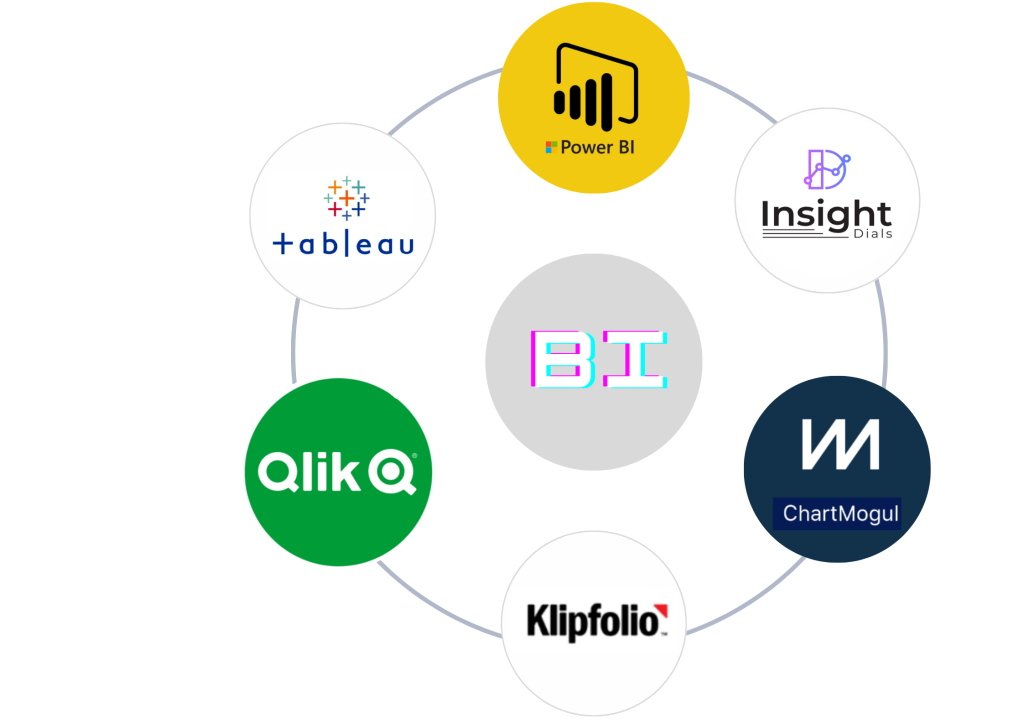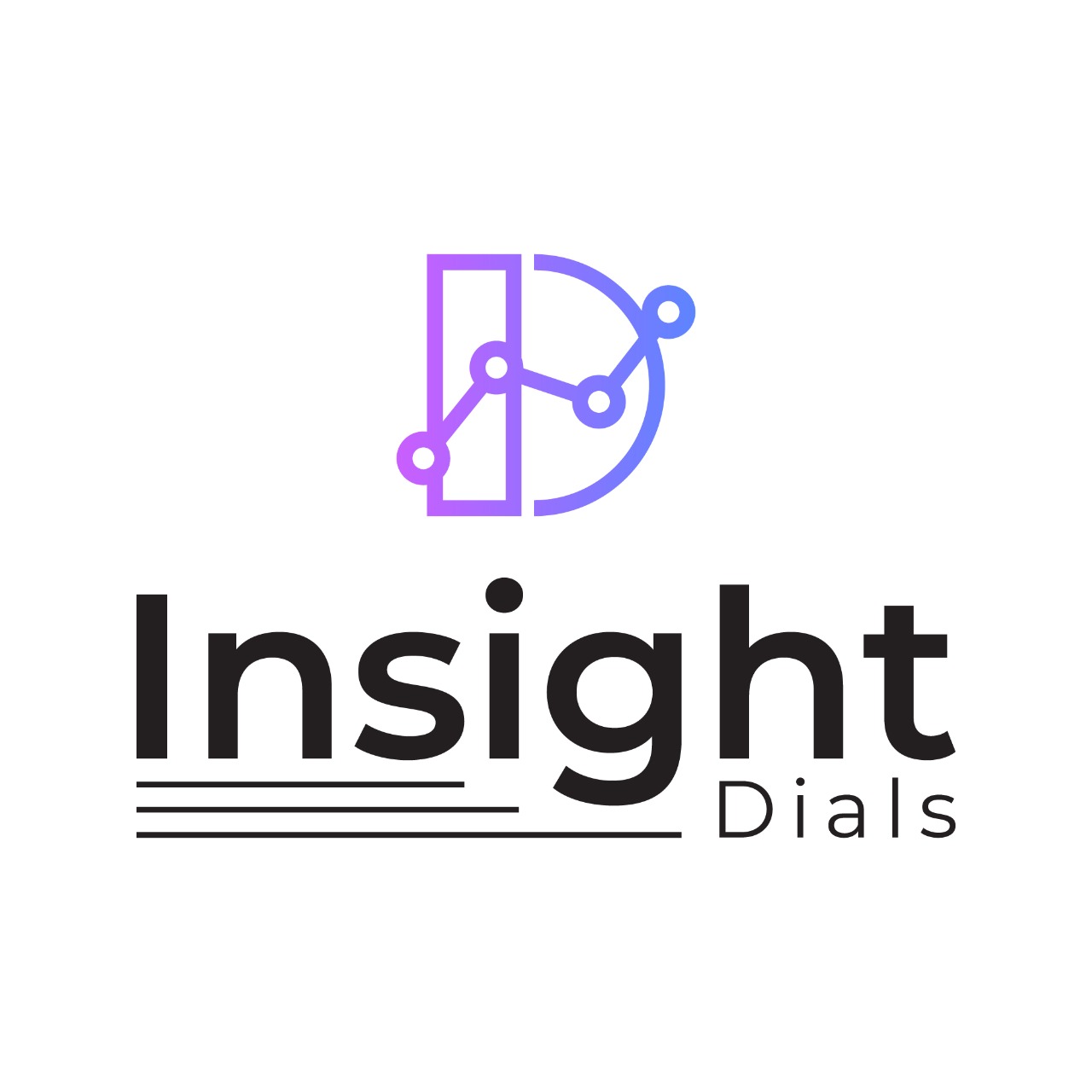
Business Intelligence (BI) refers to the set of strategies, processes, technologies, applications, and practices used by organizations to gain insights into and make informed decisions about their business operations and performance. It involves the collection, integration, analysis, and presentation of business data, often from multiple sources, to support data-driven decision-making.
BI can encompass a wide range of activities, including data warehousing, data mining, predictive modeling, and reporting and visualization. The goal of BI is to provide relevant, timely, and accurate information to business stakeholders, enabling them to make informed decisions and improve the overall performance of the organization.
Some common applications of BI include sales analysis, customer segmentation, market analysis, financial analysis, supply chain optimization, and performance management. The tools used in BI can range from simple spreadsheets and data visualizations to more sophisticated data analytics platforms and business intelligence software. Identifying the right or the ideal business intelligence tool for small and medium businesses is the most crucial step.
How is Business Intelligence useful for businesses?
Business Intelligence is extremely useful to businesses as it provides a centralized, data-driven approach to decision-making that can help organizations achieve their goals and objectives. Here are some specific ways in which BI can be useful to a business:
- Improved decision-making: By providing access to accurate and relevant data, BI enables business stakeholders to make informed decisions that are based on solid evidence rather than intuition or guesswork. This can result in better outcomes and more efficient use of resources.
- Increased operational efficiency: BI can help businesses identify bottlenecks, inefficiencies, and areas for improvement in their operations. This can lead to more streamlined processes, improved resource utilization, and increased productivity.
- Better customer insights: BI can provide businesses with valuable insights into customer behavior, preferences, and buying patterns. This information can be used to develop more targeted marketing strategies, improve the customer experience, and increase customer loyalty.
- Competitive advantage: By having access to data-driven insights, businesses can gain a competitive advantage over their rivals. This can help organizations stay ahead of the curve and position themselves for success in their respective markets.
- Improved financial performance: BI can provide businesses with real-time visibility into their financial performance, enabling them to make informed decisions about budgeting, forecasting, and resource allocation. This can lead to improved financial performance and increased profitability over time.
Overall, Business Intelligence can help organizations make better decisions, improve their operations, gain a competitive edge, and achieve their goals and objectives more effectively.
Why do small businesses stay away from Business Intelligence?
There are several reasons why some small businesses may choose to stay away from Business Intelligence (BI) initiatives:
- Cost: Implementing a BI solution can be expensive, especially for small businesses with limited budgets. The cost of acquiring and maintaining the necessary hardware and software, as well as hiring specialized personnel, can be a significant barrier for many small businesses.
- Complexity: BI can involve complex technology and data management processes, which may be overwhelming for small businesses with limited technical expertise. Additionally, small businesses may not have the necessary data infrastructure in place to support BI initiatives.
- Lack of data: Some small businesses may not have a sufficient amount of data to make BI initiatives worthwhile. In order for BI to be effective, there must be enough data available to support meaningful analysis and insights.
- Resistance to change: Small businesses may be resistant to change and may not be willing to invest the time and resources required to implement and maintain a BI solution. Some small business owners may also be uncomfortable with relying on data to make decisions, preferring instead to rely on intuition and personal experience.
- Lack of understanding: Finally, some small business owners may simply not understand the potential benefits of BI, or may have misconceptions about what it entails. This lack of understanding can lead to a reluctance to invest in BI initiatives.
Despite these challenges, there are many small businesses that have successfully implemented BI solutions and are reaping the benefits of data-driven decision-making. With the right resources and expertise, small businesses can successfully leverage BI to improve their operations, gain a competitive edge, and achieve their goals and objectives. So the first step is to identify the ideal business intelligence tool for your small and medium businesses.
Which are the popular BI tools for small and medium businesses?

Power BI
Power BI is a cloud-based business intelligence platform that provides small businesses with a powerful set of tools for data visualization, analysis, and reporting. With Power BI, small businesses can easily connect to and integrate data from a variety of sources. Including spreadsheets, databases, and cloud-based applications, to gain insights into their operations and performance. Power BI’s intuitive, user-friendly interface makes it user-friendly. Its low cost of entry and flexible pricing options make it an attractive option for small businesses with limited budgets. Additionally, Power BI offers a range of data visualization and reporting tools. These help small businesses communicate data insights to stakeholders, including custom dashboards, interactive reports, and data visualizations. Overall, Power BI provides small businesses with a powerful, cost-effective, and user-friendly solution for data analysis and reporting.
Tableau
Tableau is a powerful data visualization and business intelligence platform that is suitable for small businesses. Tableau’s intuitive drag-and-drop interface and robust data visualization capabilities make it easy for small businesses to analyze and understand their data. With Tableau, small businesses can connect to a variety of data sources, including spreadsheets, databases, and cloud-based services, to gain insights into their operations and performance. Additionally, Tableau’s cloud-based platform allows for real-time data analysis and sharing. Making it an ideal solution for small businesses with remote or geographically dispersed teams. Furthermore, Tableau offers a range of pricing options and flexible licensing options. Thus making it a cost-effective solution for small businesses with limited budgets. Overall, Tableau provides small businesses with a powerful, user-friendly, and cost-effective solution for data analysis and visualization.
Qlik
Qlik is a business intelligence and data visualization platform that is well-suited for small businesses. Qlik’s in-memory data engine and patented associative indexing technology make it a fast and efficient solution for analyzing large amounts of data, even for small businesses with limited computing resources. Qlik’s drag-and-drop interface and intuitive visualizations make it easy for small businesses to understand their data. Additionally, Qlik’s platform offers a range of data integration and data preparation tools. Allowing small businesses to connect to a variety of data sources and easily prepare their data for analysis. Furthermore, Qlik offers flexible licensing options and a range of pricing options. Thus making it a cost-effective solution for small businesses with limited budgets. Overall, Qlik provides small businesses with a powerful, user-friendly, and cost-effective solution for data analysis and visualization.
Chart Mugol
ChartMogul is a business intelligence and analytics platform designed specifically for subscription-based businesses, including small businesses. ChartMogul provides small businesses with powerful tools for tracking, analyzing, and optimizing their recurring revenue streams. With ChartMogul, small businesses can easily track their customer acquisition, churn, and revenue metrics, and visualize their data with interactive charts and graphs. Additionally, ChartMogul offers robust reporting and segmentation capabilities, allowing small businesses to identify and target their most valuable customers. ChartMogul integrates with a variety of payment gateways and billing systems. Thus making it easy for small businesses to import their data and start analyzing it right away. With its user-friendly interface and flexible pricing options, ChartMogul is a cost-effective solution for small businesses looking to optimize their recurring revenue streams and drive growth.
Klipfolio
Klipfolio is a cloud-based business intelligence and data visualization platform that is well-suited for small businesses. It provides small businesses with an easy-to-use platform for building real-time dashboards. Also, visualizing their data, allows them to quickly gain insights into their performance and make informed decisions. Klipfolio integrates with a variety of data sources, including spreadsheets, databases, and cloud-based applications. Thus making it easy for small businesses to access their data and start visualizing it right away. Additionally, Klipfolio offers a range of customization options, allowing small businesses to build dashboards that meet their specific needs and requirements. With its cost-effective pricing options and user-friendly interface, Klipfolio is a powerful solution for small businesses looking to streamline their data analysis and visualization processes.
InsightDials
InsightDials is a cloud-based business intelligence platform that caters to the needs of small and medium-sized businesses. This no-code solution enables users to access pre-designed dashboards that come with carefully selected key metrics. This makes the entire data analysis process automated. By leveraging this platform, businesses can seamlessly access, analyze, and visualize their sales, support, operations, and billing data, thereby making better-informed decisions and driving growth.
InsightDials is going industry by industry, serving one industry at a time, by offering integrations with popular tools and analyzing key metrics relevant to that industry. Currently, the platform is focused on the subscription industry, where they have launched for Web Hosting & ISP Industry. They have developed integrations with data sources like WHMCS, Zoho Desk, Tawk, Google Analytics, and more. This makes it an ideal business intelligence tool for small and medium-sized businesses operating in the subscription industry.
Conclusion
In conclusion, Business Intelligence (BI) is a must-have and not to be missed for modern businesses, big or small alike. It provides organizations with a comprehensive view of their operations, customer behavior, and financial performance. Thus enabling them to make informed decisions that drive growth, improve efficiency, and increase profitability. BI helps organizations stay ahead of the curve by providing real-time data and actionable insights. That can be used to drive change, optimize processes, and deliver a better customer experience. With the increasing availability of cloud-based BI solutions, there is no reason why businesses of any size shouldn’t take advantage of these valuable tools. By leveraging BI, businesses can unlock the full potential of their data. Stay ahead of the competition, and secure their future success. Hope this provides guidance on how to identify the ideal business intelligence tool for small and medium businesses.


